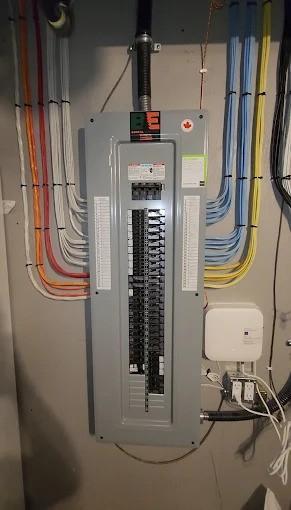
The concept of a “smart home” has expanded far beyond voice-enabled lamps and app-scheduled thermostats. Modern smart plumbing systems now define how homeowners interact with one of their most essential amenities: water. As households grow more efficient and proactive, these systems are transitioning from luxury enhancements to essential amenities. Here are three reasons why modern homes need smart plumbing systems.
Leak Detection and Prevention of Water Damage
Water damage is among the most common and costly home insurance claims, often caused by concealed leaks in pipes, appliances, or fixtures. Traditional plumbing systems provide no warning until a problem becomes visible.
By then, walls, floors, or foundations may already be compromised. Smart plumbing solutions act as vigilant guardians. Equipped with water sensors and an auto-seal valve, they monitor water use in real time, flagging changes like sudden pressure drops or continuous drips.
For example, a sensor placed under a bathroom faucet will detect a leaky pipe and notify the homeowner automatically via a smartphone app. If the issue is not resolved on time, the system will even turn off the water supply to that section automatically to prevent further damage. Certain systems even learn what constitutes normal water usage levels in a residence, detecting anomalies such as an open toilet or an overflowing washing machine.

High-tech installation companies like Water Pros Plumbing now recommend integrating the newest technologies during periodic upgrades as a standard practice to prevent crises. With early leak detection, smart systems save thousands of dollars in repairs and avoid mold growth, structural damage, and insurance claims.
Water Efficiency and Environmental Sustainability
Global water shortages and rising utility costs are compelling homeowners to rethink usage. Smart plumbing systems address both issues by ensuring peak water efficiency without sacrificing comfort. Smart irrigation controllers regulate outdoor watering schedules based on weather forecasts and soil saturation, so grass receives only what it requires. Inside, smart showerheads and faucets manage flow rates and temperatures, saving water without sacrificing user preferences.
These systems also give homeowners granular information on water use. They can monitor usage by fixture, detect inefficiencies, such as an old dishwasher wasting water, and implement daily or monthly limits. A family, for example, might find that their teenagers’ hour-long showers make up 40% of their water bill and use the system to impose shorter times. With time, these changes add up to substantial savings, both financially and environmentally.
Smart plumbing supports sustainability goals. Households minimize their carbon footprint by curbing wasteful consumption and recycling grey water for watering. Where there are tiered water rates or drought restrictions, such systems offer compliance at no punitive cost.
Remote Control and Proactive Maintenance
The modern lifestyle demands flexibility and smart plumbing delivers it by putting control in the hands of homeowners. While traveling for work or lounging on the couch, users can reconfigure water heaters, monitor usage, or shut off main lines via mobile apps. Vacationers no longer need to worry about pipes freezing in cold winter weather; a few taps on the phone can drain the system or control safe temperatures from thousands of miles away.
Proactive maintenance features also contribute to convenience. Smart water heaters detect issues like sediment buildup or heating element malfunction and schedule service calls.

Insulation monitoring on pipes can detect freezing hazards and trigger preventive action, like pumping hot water into vulnerable lines. These features add to the longevity of plumbing materials and reduce the likelihood of unexpected repairs.
Smart technologies also facilitate service provision for plumbing professionals. Diagnostic data sent directly from the home allows technicians to diagnose issues before making trips, conserving time and avoiding guesswork. The convenience benefits homeowners through faster fixes and lower service bills.
Endnote
Smart plumbing systems have made water management a proactive and seamless process. These systems avert disasters, encourage sustainability, and enhance control, safeguarding homes, finances, and the ecosystem. As climate concerns and utility costs rise, smart plumbing is necessary rather than merely a convenience.












